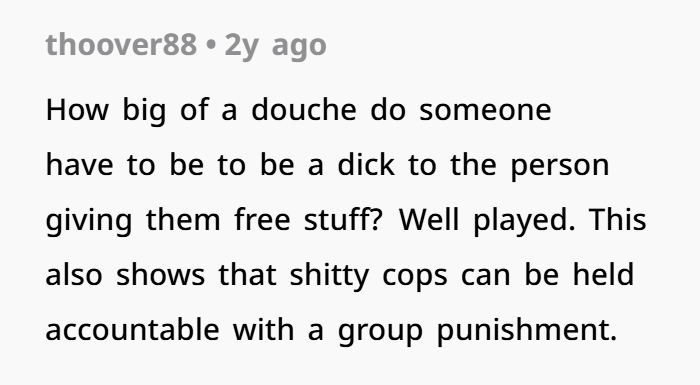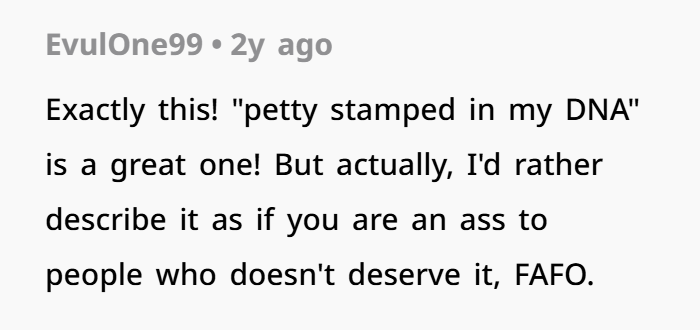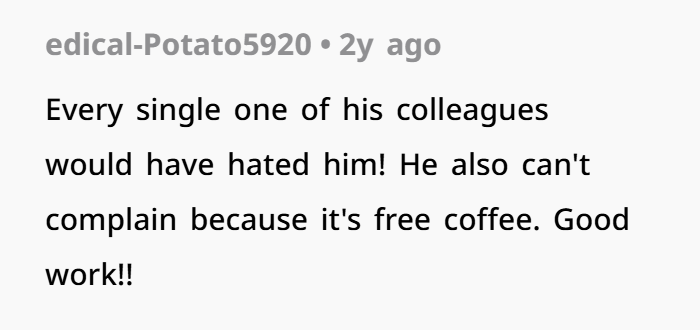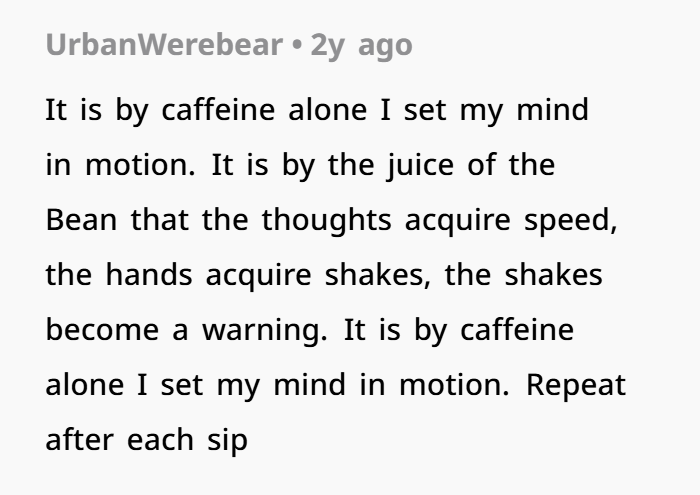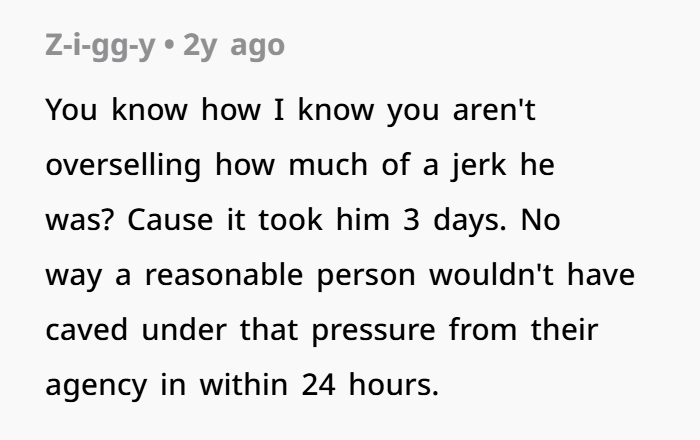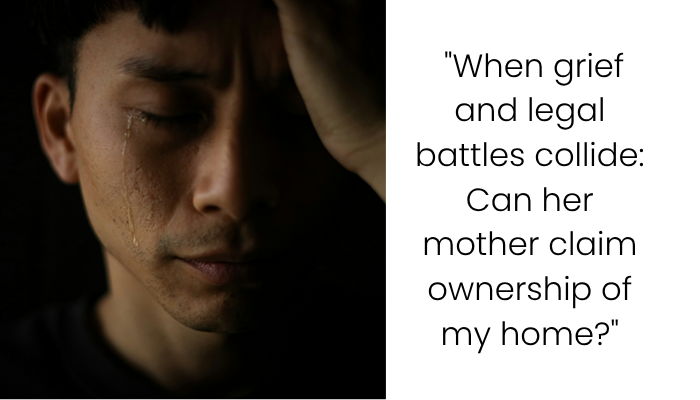Who Watches the Watchmen? The Barista with the Decaf.

This brilliantly petty tale of workplace revenge and unintended justice unfolds at a travel plaza coffee shop, where the narrator—an overworked but unshakeably resilient barista—encounters the limits of customer service tolerance. Thanks to a policy of free coffee for uniformed law enforcement officers, the narrator had a front-row seat to countless daily interactions with state troopers. Most of them were pleasant, appreciative, and routine. That is, until one officer decided to take his bad day out on the wrong person.
Advertisement – Continue Reading Below
After a particularly nasty exchange left the narrator in tears—an achievement in itself given their seasoned customer service background—the state trooper refused to apologize. Big mistake. Unbeknownst to him, the barista wasn’t just any employee; she was essentially irreplaceable in an understaffed store and had direct control over something crucial: coffee, the lifeblood of the law enforcement routine. She calmly declared a caffeine embargo, replacing regular coffee with decaf for every state trooper until she received the apology she was owed. Three caffeine-deprived days later, the apology came—along with a visible shift in respect.
Sometimes, customers are unnecessarily rude to baristas for no apparent reason

A barista shared a hilarious story about how she got back at a rude state trooper by serving him and his colleagues decaf until he apologized
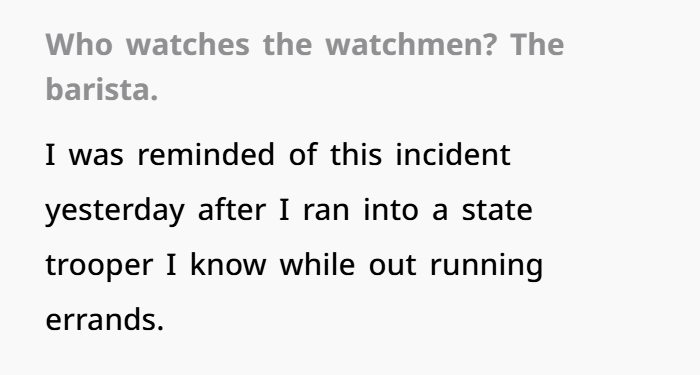
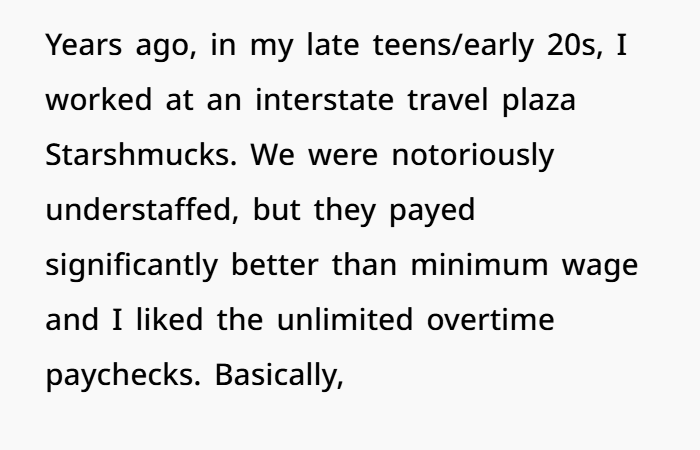
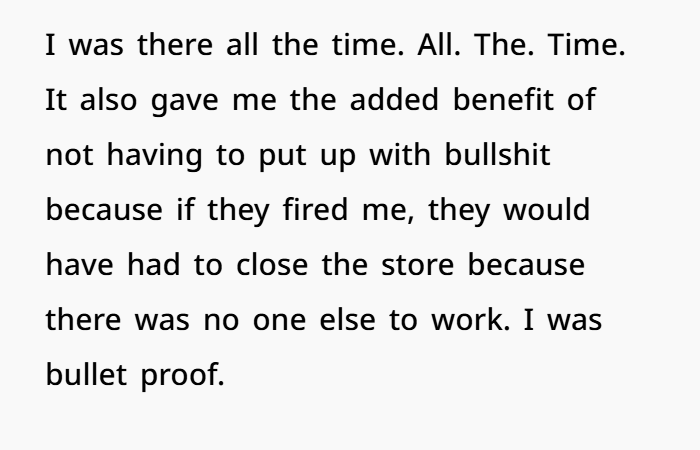
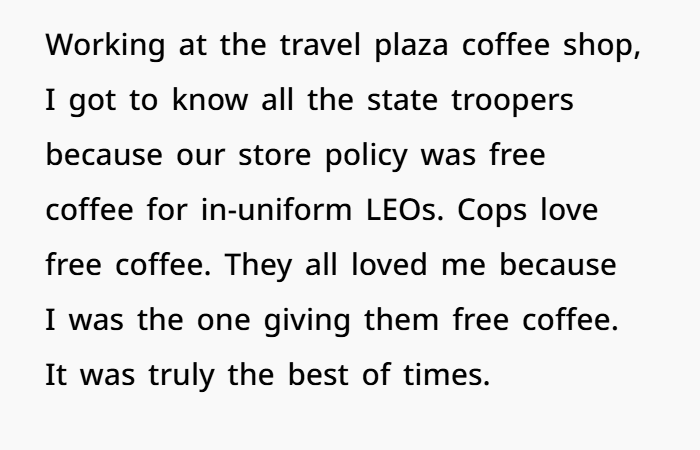
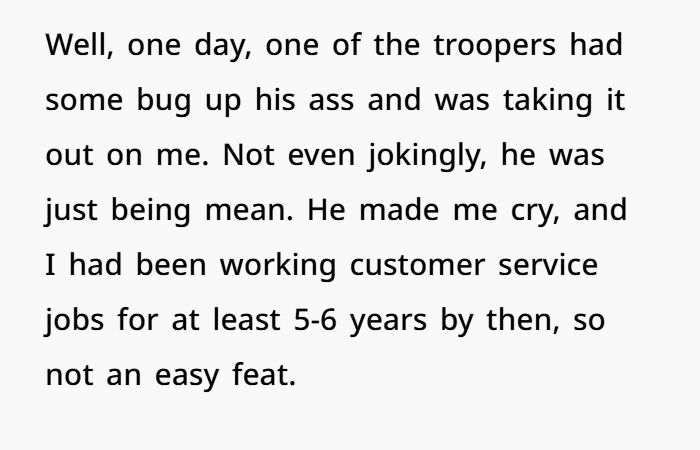
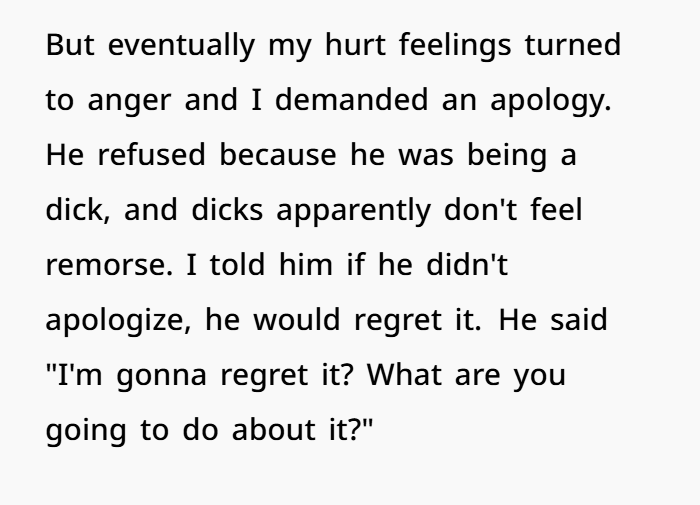
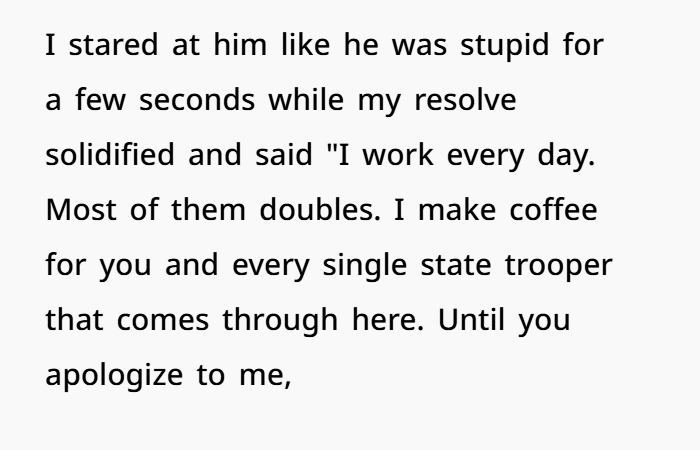
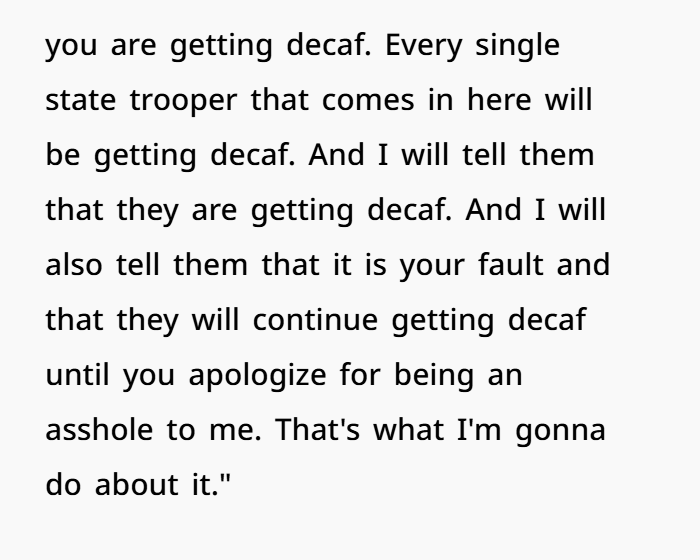
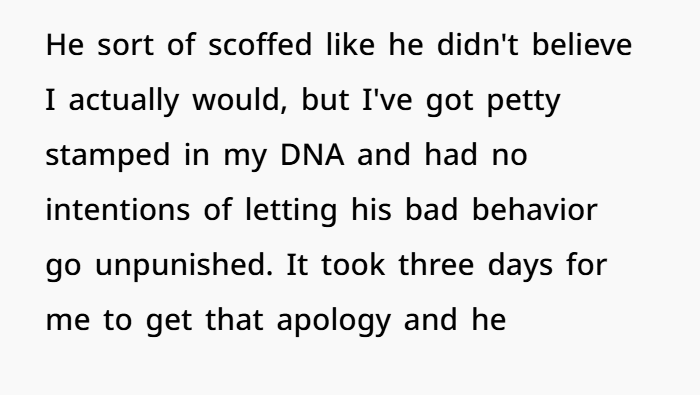
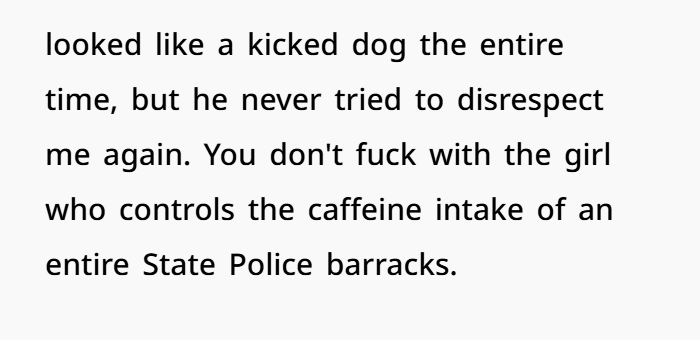
Power, Petty Justice, and Workplace Dynamics
Advertisement – Continue Reading Below
While humorous on the surface, this story touches on deeper themes around workplace respect, subtle power dynamics, and personal agency. The narrator’s response wasn’t just a creative act of revenge—it was a masterclass in soft power and social leverage.
The Unseen Power of Service Workers
At its core, this story is a reminder of something often forgotten in customer-facing jobs: power doesn’t always lie with the uniform or the badge. While state troopers carry legal authority and a certain societal respect, in this coffee shop, the real power rested with the person who controlled their caffeine fix. As sociologist Michel Foucault would argue, power is relational and situational—it’s not something possessed, but exercised. In this setting, the barista had all the leverage, and she used it wisely.
This tale also reflects what management theorist Rosabeth Moss Kanter termed “positional power”: the influence a worker gains not through formal authority, but through their control over vital processes. The barista may not have been a manager, but her grip on caffeine was, in this microcosm, equivalent to controlling a commodity more valuable than gold—morning alertness.
Advertisement – Continue Reading Below
The Role of “Petty Justice”
The strategy of serving decaf to a troop of unsuspecting officers functions as a form of petty justice or everyday resistance. These terms describe minor, nonviolent actions that people use to push back against authority or unfair treatment—often humorous, symbolic, and deeply effective.
In James C. Scott’s seminal work, Weapons of the Weak, he documents how small acts—like foot-dragging, evasion, and subtle sabotage—can serve as tools for the disenfranchised to assert themselves in systems stacked against them. This act of revenge fits that mold. No threats, no rules broken, just a smart use of available resources to restore personal dignity.
The fact that the barista was transparent about her actions (“I will tell them they are getting decaf”) adds a psychological layer: it introduced a social cost for the trooper’s behavior. The officer didn’t just have to face his own caffeine withdrawal—he had to deal with peer consequences, becoming the reason everyone was denied their pick-me-up. Peer pressure is a powerful tool, especially in tight-knit groups like law enforcement.
Advertisement – Continue Reading Below
Gender Dynamics and Emotional Labor
The story also reveals underlying gender dynamics and the often invisible burden of emotional labor. Women in service roles frequently face the expectation to absorb rudeness and hostility with a smile. When that unspoken expectation is broken—as in this tale—it’s not just surprising, it’s powerful. The narrator refused to be a passive recipient of someone else’s bad day, instead demanding an apology on equal footing.

Studies have shown that women in customer service roles are disproportionately subjected to verbal aggression and entitled behavior. The emotional toll is significant—and under-acknowledged. This barista, through a subtle but strategic act of defiance, claimed control over that narrative and reset the power dynamic on her terms.
Lessons in Respect and Redemption
While the trooper started off as the antagonist, his eventual apology—and changed behavior—suggests that he learned from the encounter. In many ways, this is a rare example of restorative justice at the coffee counter: the perpetrator acknowledged harm, made amends, and relationships improved. He never disrespected her again, and she, by standing her ground, ensured that respect became mutual.
Advertisement – Continue Reading Below
In workplaces across the country, especially those involving direct public interaction, stories like this resonate because they validate the lived experiences of underappreciated workers. They remind us that sometimes, respect has to be demanded—and that justice doesn’t always wear a robe or a badge. Sometimes, it wears an apron.
Curious readers wanted to know more, and the author later shared additional context about the incident
